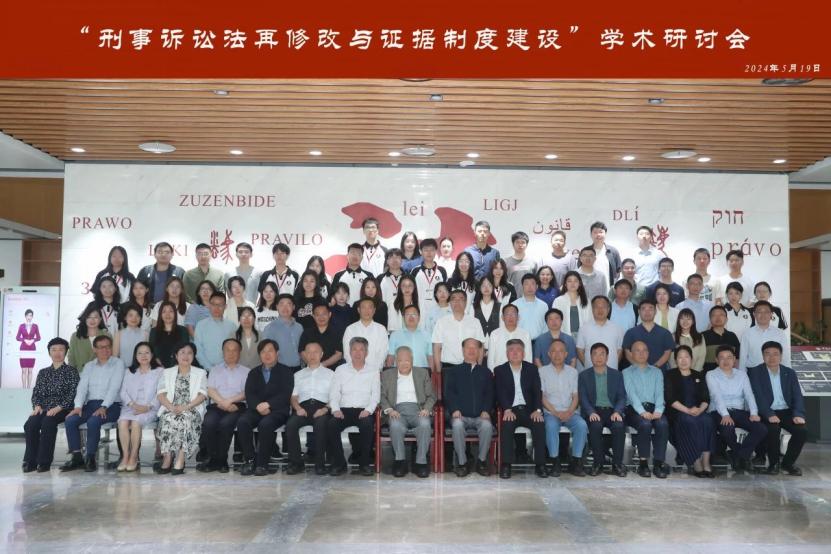On May 19th, coinciding with the 18th anniversary of the founding of our university's Institute of Evidence Law and Forensic Science, an academic symposium titled "Further Amendments to the Criminal Procedure Law and the Development of the Evidence System" was held at the Haidian campus. Experts and scholars from various institutions, including the Legislative Affairs Commission of the Standing Committee of the National People's Congress, the Supreme People's Court, the Supreme People's Procuratorate, Peking University, Tsinghua University, Renmin University of China, China University of Political Science and Law, University of the Chinese Academy of Social Sciences, Central University of Finance and Economics, Zhejiang University, Jilin University, Sichuan University, Southwest University of Political Science and Law, Zhongnan University of Economics and Law, and Chongqing University, gathered to engage in in-depth discussions on promoting the development of China's criminal evidence system and the study of evidence law.

(Photographed by Lu Yunkai at the academic symposium on "Further Amendments to the Criminal Procedure Law and the Development of the Evidence System")
The opening ceremony was chaired by Zhang Zhong, Deputy Director of our university's Institute of Evidence Law and Forensic Science. Wang Xu, the Director of the Institute, delivered a welcoming speech. She introduced the achievements of the Institute over the past five years and explained the purpose of the symposium: to discuss further amendments to the Criminal Procedure Law and the development of the evidence system, thereby promoting the continuous improvement of China's criminal evidence system.
The keynote speech session was chaired by Long Zongzhi, a professor at the Law School of Sichuan University. Our university's lifetime professor Chen Guangzhong delivered a speech titled "Exploring Several Issues in the Improvement of the Criminal Evidence System"; Professor Fan Chongyi from the Institute of Procedural Law spoke on "Promoting the Improvement and Progress of the Evidence System with the Concepts and Requirements of Judicial Modernization"; Professor Bian Jianlin from the Institute of Procedural Law addressed "Several Thoughts on Improving the Criminal Evidence System—On the Occasion of Further Amendments to the Criminal Procedure Law"; and Professor Zhang Baosheng from the Institute of Evidence Law and Forensic Science discussed "Theoretical Reflections on the Construction of China's Modern Criminal Evidence System—Exploring Further Amendments to the Criminal Procedure Law."
The keynote speeches were divided into four units, with participating experts and scholars sharing their insights on relevant systems of the Criminal Procedure Law and the trial process of criminal litigation.
At the closing ceremony, Zhang Baosheng first expressed heartfelt gratitude to all the scholars and experts who attended the symposium. He then provided a brief summary and commentary on the main points discussed during the speeches. He expressed hope that the topics discussed at this symposium would continue to be explored in future discussions, contributing expert opinions to the further improvement of the criminal evidence system during the next amendment of China's Criminal Procedure Law.